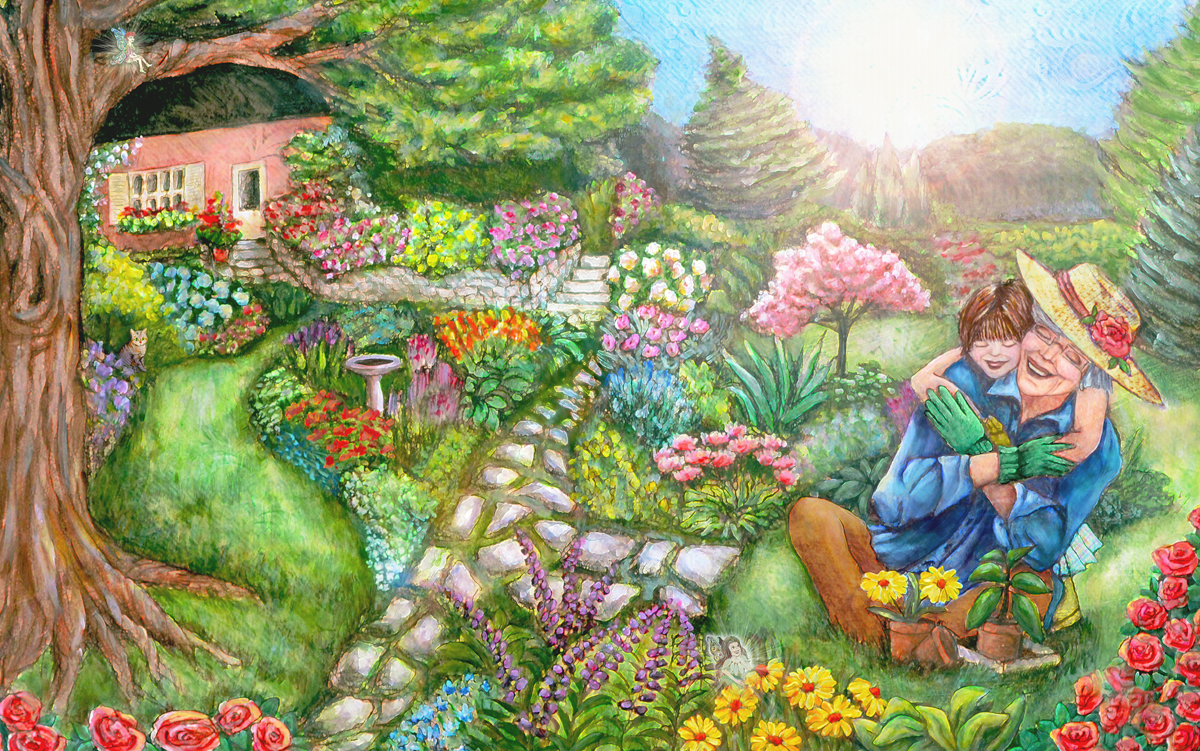
Explaining dementia to kids
My mom was diagnosed with young onset dementia shortly after my son was born in 2005. My daughter had just turned two. It was not a surprise as mom had been showing signs, but it was heartbreaking – she was only 62.
Despite the disease, my kids were still able to connect with their Nana in many ways. They shared simple activities like colouring, singing, blowing bubbles or picking flowers. In fact, I found that having young children around really helped bring on some happy times. The kids were always so accepting. They didn’t care if she wore her pajamas outside. It taught me to relax more and have fun.
There were certainly moments when they felt unsure around their Nana. Often the changes kids witness from these diseases can be very scary. But by talking openly about dementia as a sickness in the brain, and by spending time with their Nana often, my kids felt more comfortable and were able to give her much love and support.
My positive experience motivated me to look at developing more ways to help bring children into the dementia experience. I decided creating a picture book could help kids understand and in so doing, encourage their involvement.
But how could I explain it to kids? It was a walk through my mom’s beautiful garden with my daughter that inspired the answer. After the walk, my daughter and I spoke about brain disease and she made the connection between how the growing weeds in the garden were like the disease growing in the brain. We talked about the weeds hiding the flowers like the disease hides the person; but they’re still there. It seemed simple yet understandable. Following my mom’s passing in 2010, I started writing and illustrating Weeds in Nana’s Garden using this concept. My painted scenes drew heavily from my mom’s actual garden.
I also decided to extend the reach of this effort by self-publishing the work and donating $1 from the sale of each book to the Alzheimer Society of Canada, an organization that supported me greatly during my mom’s illness.
The book tells the story of the bond between a grand-daughter and her Nana within a magical garden. It is filled with expressive images and things to find that engage the reader. Candid yet approachable, it covers the different stages of dementia diseases while also celebrating the strength of the heart. After the story, a Question and Answer section is included that was developed with input from kids. For more information, visit http://weedsinnanasgarden.com.
Dementia diseases are not easy. Educating children can help. It can help kids feel more comfortable and valuable. It can help families stay more connected and involved. Plus, opening up the minds of children leads to greater understanding and awareness for all. If this book is able to play a small part in spreading this knowledge, I know my mom would be thrilled!
 Canadian Author / Illustrator Kathryn Harrison holds a compelling blend of science, marketing and art skills. She has a Bachelor of Science degree, an MBA in Marketing, and worked for over a decade as a Communications professional before earning a Fine Art Diploma from the Toronto School of Art. Although she has done much creating during her life, stirred by her personal experience with her mother’s dementia, Kathryn wrote and illustrated this picture book, and was able to layer all her different abilities together.
Canadian Author / Illustrator Kathryn Harrison holds a compelling blend of science, marketing and art skills. She has a Bachelor of Science degree, an MBA in Marketing, and worked for over a decade as a Communications professional before earning a Fine Art Diploma from the Toronto School of Art. Although she has done much creating during her life, stirred by her personal experience with her mother’s dementia, Kathryn wrote and illustrated this picture book, and was able to layer all her different abilities together.